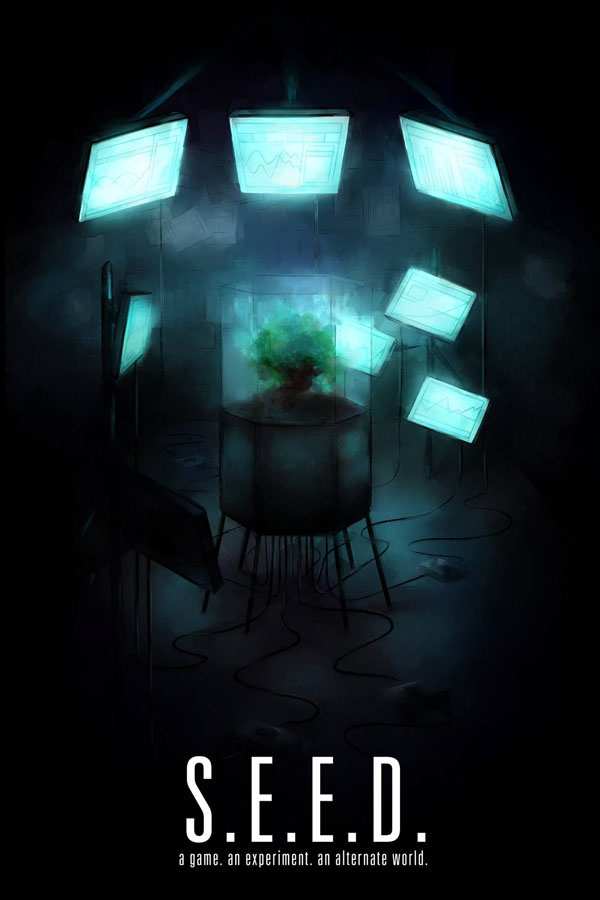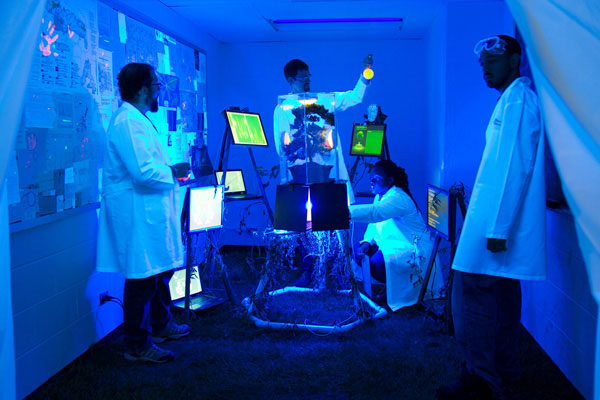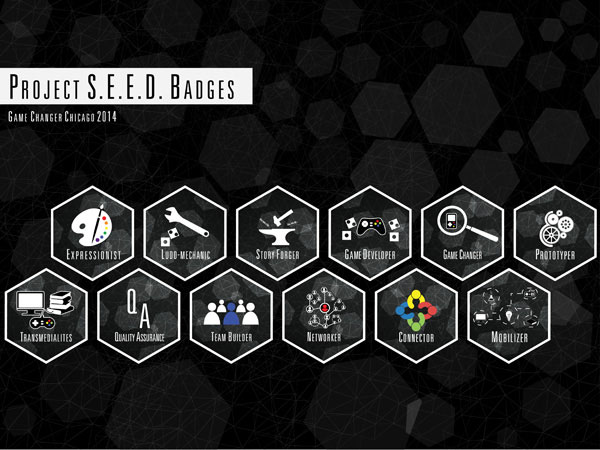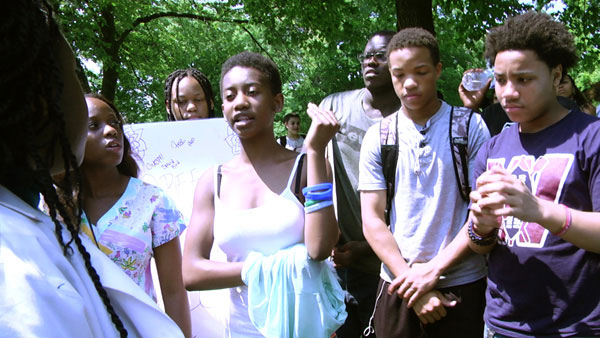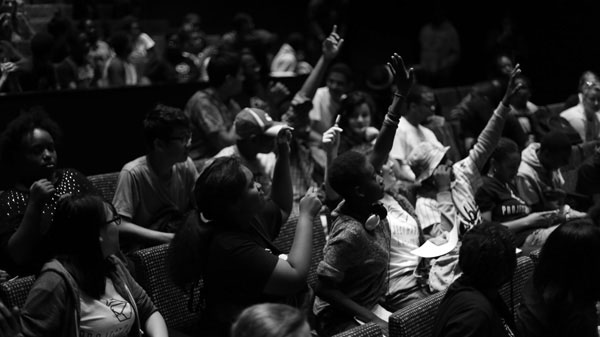S.E.E.D.
alternate reality game
2014
Directed with: Ashlyn Sparrow and Melissa Gilliam
Created with: Game Changer Chicago Design Lab
Support: John D. and Catherine T. MacArthur Foundation, the Neubauer Family Collegium for Culture and Society, Aramark Higher Education, and the University of Chicago Humanities Division and Humanities Visiting Committee
S.E.E.D. was an alternate reality game created to guide high school youth through a STEM (Science, Technology, Engineering, and Math) curriculum and to introduce them to the basics of serious game design. From July 7 through August 8, 2014, the Game Changer Chicago Design Lab hosted approximately 70 youth, ages 13–18, on the University of Chicago campus. For three weeks, participants played a transmedia game that told a single science fiction story through video, audio, email, computer games, locative media, social media, and live-action theatrical performance. Players collaborated in small teams to get through challenges and influence the narrative. Actors played a group of “Temporal Archivists” (historians of the future) who introduced players to the “S.E.E.D. technology” that enabled communication with the 2030s. The Temporal Archivists told players that, in three weeks, the end of the world would be initiated — unless they intervened. The Temporal Archivists also introduced an atmosphere of paranoia by telling players that one of them had come to be known, in the 2030s, as the "World's End" and would have to be identified in the coming weeks. Thus, the players became protagonists in a narrative that changed based on improvisational play between designers and players.
Following this game, youth took part in an intensive, two-week workshop during which they learned game design and development skills. Students drew from their S.E.E.D. experience to produce prototypes of board games and short transmedia games about topics that included gang violence in Chicago, gender discrimination in the workplace, teen pregnancy, and the threat of water shortage and desertification.
The S.E.E.D. program operated simultaneously as a designed game, an out-of-school learning curriculum, an educational research study, a practice-based humanities experiment, an opportunity for hands-on media theory, and a scalable social intervention. The game was covered in several publications, including Fast Company magazine, Chicago Sun-Times, and Hyde Park Herald.
A video overview of S.E.E.D.
A documentary and multimedia essay about S.E.E.D.
Daily blog entries from the 25 days of the game and summer program.
The in-world orientation video that initiated the three-week gameplay experience.
